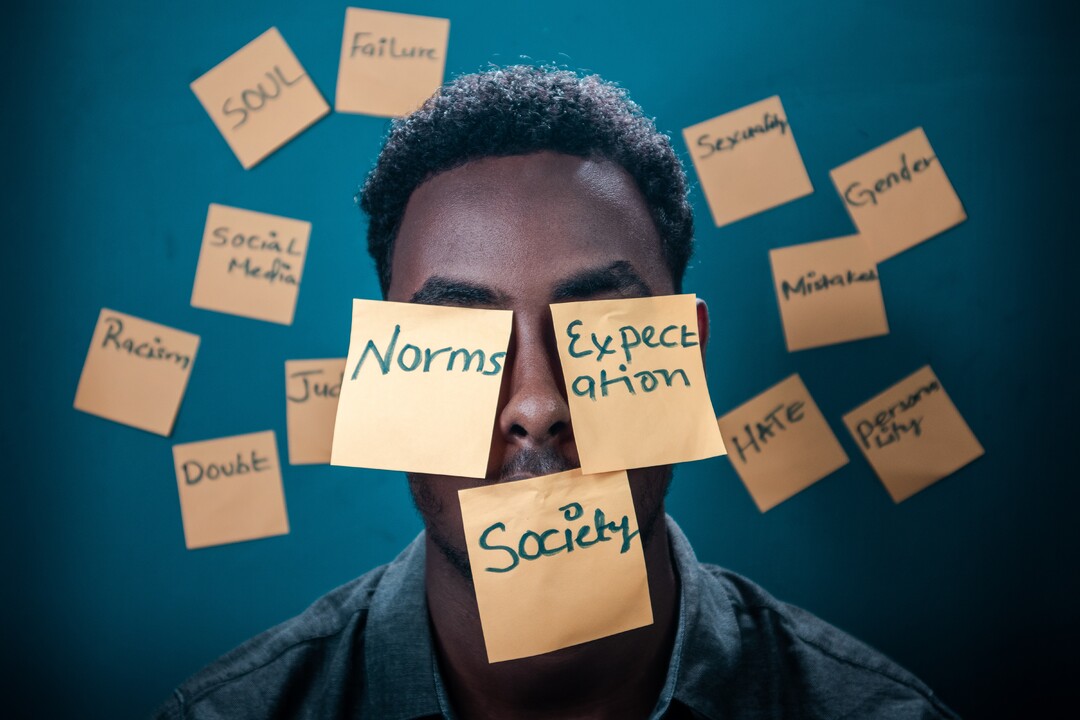Understanding Society’s Expectations: An Overview
Exploring societal expectations begins with acknowledging the prevalent norms, values, and standards that shape our collective behaviors, attitudes, and life goals. These are generally unspoken rules that dictate how we should act, think, and feel in various life situations, both privately and publicly. It’s crucial to grasp that society’s expectations are not always clearly stated but subtly enforced through various social interactions, cultural norms, educational systems, media, and even our own families.
Delving deeper into societal expectations reveals two significant categories: performance-based and value-based expectations. Performance-based expectations pressure individuals to achieve certain life benchmarks, such as attaining academic laurels, securing a good job, getting married, and raising children. These expectations push people on a predefined success path, often disregarding their personal aspirations or unique abilities.
On the other hand, value-based expectations hinge on moral, ethical, and social values that differ across societies. Examples include being respectful, tolerating differences, being empathetic, or upholding family honor. These expectations shape our behavior and dictate how we should react to different situations in life.
Interestingly, despite their omnipresence, societal expectations tend to remain invisible until we fail to meet them. This ‘failure’ often leads to feelings of shame, guilt, or inadequacy, causing poor self-esteem and significant distress. Thus, society’s expectations wield a tremendous influence over our mental health, shaping our self-perception, and consequently our well-being.
Ironically, while societal norms aim to maintain harmony and order, they can also significantly contribute to mental health issues when they exert excessive pressure, resulting in stress, anxiety, depression, and even suicidal tendencies. Therefore, an in-depth understanding of society’s expectations is essential, as it can help us navigate this complex network of predetermined ‘rules’ and understand their potential impact on mental well-being.
The Connection Between Social Expectations and Mental Health
From my experience as a clinical psychologist, I’ve observed a strong link between social expectations and an individual’s mental health. Society, consciously and unconsciously, imposes various norms and standards that it expects its members to align with. The pressure to conform can be intense, leading to a profound psychological impact as people strive to ‘fit in’. This societal pressure can come from various sources like family, peers, media, and even cultural and religious groups, each having its distinct set of expectations and norms.
I’ve conducted sessions with numerous clients burdened under the weight of these societal constructs. Individuals who feel they do not meet these expectations often feel inadequate, leading to mental health issues such as anxiety, depression, and low self-esteem. One common scenario is the expectation to follow the ‘standard’ life trajectory–academics, job, marriage, kids–in that order. Deviating from or not achieving this set path can induce severe stress and anxiety.
Social media has magnified this problem even further. It perpetuates ideal beauty standards, lifestyle expectations, and success metrics that are often unrealistic and far from the norm. The online world presents a highly curated version of reality, leading individuals to compare and feel discontent with their own lives. This can escalate to unhealthy levels, leading to anxiety disorders, body dysmorphia, and depressions to name a few.
Another critical aspect is the expectation to always appear happy and satisfied. Society often stigmatizes the expression of negative emotions, leading individuals to bottle up their struggles, without a proper channel to express or address them. This repression fuels feelings of isolation, loneliness, and despair, severely impacting mental health.
Everyone, at some point in their lives, faces the brunt of these societal expectations. I believe understanding and acknowledging this link is the first step in an essential journey towards better mental health. It is crucial to foster a society that values individual uniqueness, and promotes acceptance over judgment. As the saying goes ‘it’s okay not to be okay’. And, indeed, it must be. Each one of us has our own path and our own pace. There is no singular ‘correct’ or ‘expected’ way of living. It’s high time society recognized and respected this individuality and diversity.
Influence of Peer Pressure on Emotional Well-being
As we continue to navigate our lives, peer pressure can play a significant role, particularly during adolescence but also in adulthood. Peers – friends, colleagues, and acquaintances – influence our thoughts, decisions, and lifestyle significantly. We tend to conform to their standards and expectations to feel accepted, validated, and appreciated. However, this attempt to meet their expectations can cause undue stress, anxiety, and diminish our self-esteem, affecting our emotional well-being.
In a bid to ‘fit in’, we are often pressured to mirror their behaviors, attitudes, and decisions – be it in terms of one’s physical appearance, educational pursuit, or lifestyle choices. For instance, the pressure to maintain a perfect body image or to pursue a ‘prestigious’ academic path might appear as non-negotiable standards among peers. However, such impositions can lead to eating disorders, anxiety, depression, and other mental disorders.
Moreover, the peer’s constant need for approval often compels us to suppress our true self, thereby leading to an identity crisis and self-doubt. This constant struggle to match their expectations contradicts our authentic selves and inhibits our self-growth and self-understanding. Consequently, we start grappling with a sense of loneliness, frustration, and dissatisfaction even when surrounded by friends.
In severe cases, when the pressure to conform becomes overwhelming, individuals might succur to detrimental habits like substance abuse, reckless behavior, or self-harm. It becomes a desperate attempt to either cope with the stress or fit into the peer group’s mold. Such drastic efforts, driven by peer pressure, are clear indications of stress, anxiety disorders, or severe depressive symptoms.
In conclusion, the toll of peer pressure on our emotional well-being cannot be understated. While social acceptance is essential, it should not come at the cost of our mental health. As a society, we need to foster an environment where individuality thrives, and everyone’s emotional well-being is prioritized over societal expectations.
Navigating Gender Roles and the Impact on Mental Health
As a guide through the complexities of mental health, I’ve often noticed how deeply ingrained societal norms, particularly surrounding gender, can affect an individual’s state of mind. In general, society dictates that men should be strong, unemotional and provider-oriented while women should be nurturing, soft-spoken and often place others’ needs before their own. Although these gender expectations are beginning to shift, they continue to have a significant impact on mental health.
The internal conflict that arises when an individual’s identity or characteristics do not conform to these gender norms can become a major source of stress and anxiety. Feelings of guilt, inadequacy, and low self-esteem may emerge and persist as they feel the pressure to fit into these predefined molds. This can eventually lead to depression and a multitude of other mental health issues.
I also encounter many cases of individuals feeling pressure to suppress their emotions to meet societal gender expectations. Men often squelch feelings, perceiving them as signs of weakness, which in turn may affect their ability to appropriately express and communicate their emotions leading to mental distress. Women, on the other hand, typically bear the disproportionate burden of emotional labor, leading them to often feel overwhelmed and burnt out.
As a counselor and psychologist, I cannot overstate the importance of encouraging clients to embrace their own truth and break free from societal constraints. Support, understanding, and compassion can go a long way in managing the impact of societal expectations on mental health. Alongside coping mechanisms and resilience strategies, this can significantly reduce the impact of gender role expectations on mental health.
Additionally, society at large can play a crucial role by challenging these outdated norms and promoting more flexible and inclusive expectations. This could involve acknowledging emotions as a part of human experience regardless of gender, as well as breaking the mold of rigid gender roles. The process of challenging these expectations can significantly reduce the burden they place on mental health, fostering a more accepting and supportive environment for everyone.
The Weight of Occupational Expectations: Stress and Anxiety in the Workplace
In deeply exploring the impact of societal expectations on mental health, it’s crucial to highlight occupational pressures, which undeniably contribute significantly to stress and anxiety. Our jobs or careers not only help to define us but also set expectations on a myriad of levels. It’s common to gauge personal success in relation to professional accomplishments, and I’ve observed in my time as a psychologist that society often unconsciously pressures us into this. Because of this, the workplace sometimes becomes a place of mental and emotional strain, leading to serious health issues.
Besides, societal expectations about one’s career are not centered only around one’s position, seniority, or salary. An individual can face persistent pressure to maintain a particular image at work, constantly outperform their previous results, or constantly engage in a competition mindset. This pressure intensifies when the expectations are set high, either by the individual or by external influences, such as bosses, colleagues, or family.
The continuous psychological strain generated from trying to meet such expectations often leads to occupational burnout. Burnout is a state of chronic physical and emotional exhaustion, often paired with feelings of cynicism, detachment, and a sense of unaccomplishment. It’s the ultimate toll the body and mind pay in the face of unrelenting pressure and stress. Burnout is often a sign that societal expectations are not merely high, but unrealistically so.
Moreover, anxiety can manifest in many aspects of working life, perhaps through fear of unemployment, meeting set targets, or dealing with difficult people and situations. These fears, when left unaddressed, could likely cause irrational anxiety disorders, creating a cracked lens through which an individual perceives their world.
As a society, it’s crucial to reassess our occupational expectations and encourage a supportive, not competitive, working environment. As individuals, we need to have the wisdom to distinguish between healthy ambition and unrealistic expectations. Holding a dialogue about expectations, and their subsequent reality, is an essential step towards minimizing stress and anxiety in the workplace. We need to realize that our worth is not only tied to what we do for a living and that failing to meet such expectations is not synonymous with personal failure.
Societal Standards and Their Effect on Self-esteem
As a clinical psychologist and coach, I find it imperative to discuss how societal standards can significantly impact self-esteem. Often, these standards are perceived as benchmarks of success or acceptance, which can lead to the diminishing of self-worth if they are not met. The belief that one should adhere to societal norms to be “good enough,” “attractive enough,” or simply “enough” can create internal conflict and adversely affect the way we view ourselves.
The consistent pressure to conform to societal measures of success, such as a high-level career, marriage, or having children by a certain age can create an insurmountable amount of stress and anxiety. This is especially true when these prescribed timelines don’t align with personal ideals or plans. When individuals are unable to meet these societal standards, it can often generate a sense of failure and disappointment, leading to poor self-esteem and even depressive symptoms.
Moreover, societal standards are not only confined to achievement-based expectations. They also revolve around physical appearance, leading to the promotion of unrealistic beauty standards. The media mainly perpetuates this. With the consistent exposure to content displaying an unrealistic ideal body type, individuals can develop negative body image and fall into a spiral of low self-esteem and eating disorders.
Furthermore, the advent of social media has amplified the reach of these societal expectations. The frequent display of perfection on these platforms can heighten feelings of inadequacy and lead to self-esteem issues.
In my role as a guide and counselor, I highly stress the importance of self-compassion and understanding that everyone has their unique path. Embracing our uniqueness and rejecting unrealistic societal standards can significantly enhance self-esteem, paving the way for better mental health. It’s important to remind ourselves that we are much more than societal measures, and our self-worth should never be tied to societal expectations.
Parental Expectations: Unfulfilled Dreams and Children’s Mental Health
Many times, we tend to observe that parents place undue expectations on their children in an attempt to fulfill their own unachieved dreams. This often proves burdensome for young ones who are developing their own identities and always searching for ways to express themselves. High parental expectations can cause feelings of inadequacy, stress, and can contribute to the development of mental health issues, such as anxiety and depression.
The constant pressure to meet these significant expectations can lead children to believe they are only as good as their next achievement. If they fail in their attempts, they may experience symptoms of worthlessness and low self-esteem. These feelings, over time, can escalate into severe mental health conditions, such as chronic depression, anxiety disorders, and may even lead to self-harm or suicidal tendencies in more severe cases.
Moreover, these expectations can create a generation of people who do not know how to process failure healthily. If their self-worth is tied to their success, failure becomes more feared than it should be, which can also limit their ability to take risks and inhibit creativity – both essential elements for personal growth and development.
Moreover, children who grow up under the shadow of their parents’ unfulfilled dreams may also struggle with establishing their own identity separate from their parents. This can lead to a sense of confusion, a crisis of identity, and can potentially cause mental turmoil resulting in conditions like borderline personality disorder.
The importance of providing children with a nurturing environment that encourages them to nurture their own dreams and aspirations cannot be stressed enough. Parents should encourage individuality and understand that their children are their own persons, with their own strengths, passions, and dreams. Such understanding and acceptance can promote better mental health and well-being in children, thereby, enabling them to grow into psychologically and emotionally healthy adults.
Social Media: Amplification of Societal Expectations and Its Consequences
Learning to navigate the expectations of society is a difficult task, made significantly more complex by the addition of social media. As both a reflective mirror and a magnifying glass, social media intensifies these expectations, sometimes to an intimidating degree. Everyday, we are inundated with images of people who seem to “have it all” – perfect bodies, successful careers, and idyllic family lives. In reality, these are carefully curated moments of life that don’t necessarily reflect the truth.
The comparison of personal lives with the filtered snippets of others seen online inadvertently pushes us to strive for these artificially constructed standards of perfection. In trying to keep up, individuals often experience a heightened sense of inadequacy, increased levels of anxiety, and a significant decrease in self-esteem. This amplification of societal expectations by social media can lead us to question our own worth, compounding our feelings of self-doubt and inability to meet what we perceive as society’s demands.
Additionally, social media has a profound influence on our conception of societal norms. The widespread use of platforms such as Instagram and Facebook enables certain ideas and perspectives to be proliferated globally, creating potentially detrimental ‘norms.’ In trying to conform with these generated norms, users can feel increased pressure to look or behave a certain way, further amplifying feelings of alienation and unrest.
Therefore, it’s essential to take regular breaks from online platforms to reconnect with the reality of our lives – to fully understand that everyone is grappling with their own struggles, and managing life as best we can. Recovering from the societal pressures exacerbated by social media is a long-term journey; it involves affirming our self-worth and understanding that we don’t have to meet any expectation set by others. Together, we are all striving towards a healthier self and society.
Lastly, consider mental health a priority and speak openly about it. Emphasize that seeking help is not a sign of weakness but a demonstration of self-care and strength. When we as a society start acknowledging our vulnerabilities, we create a world where pretenses no longer hold power, where comparing our lives to others’ highlights becomes unnecessary, liberating ourselves from the daunting societal expectations amplified by social media.
The Role of Education: Societal Pressures and Student Mental Health
Through my work as a personal coach and clinical psychologist, I have seen firsthand how concerns about education can become a major source of stress for children and adolescents. Family, peer groups, and society at large often place significant expectations on students to excel acadically. This pressure can negatively impact their mental health.
In a highly competitive world, society values education as the key to a successful life. As a result, students often face external pressures to excel in their academics and extra co-curricular activities. This can create a burdensome workload that leads to stress, anxiety, depression, and a host of other mental health conditions in children and adolescents. The primary sources of this could be parental expectations, school pressures, future career prospects, and self-imposed high standards.
Furthermore, an often overlooked aspect of educational pressure also stems from the stigma and shame associated with career paths that are perceived as less prestigious. The societal emphasis on higher education often undermines and discredits alternate career paths, such as technical and vocational careers. This bias further exacerbates the mental pressure on students who may have different skills or interests.
Being a spiritual guide, I also recognize the emotional impact of feeling disconnected from one’s personal interests and natural abilities. When students are forced to conform to academic pathways that do not align with their passion or abilities, it can cause a feeling of alienation and confusion. This disconnection from the self is a significant contributor to mental health issues amongst students.
As a counselor too, I have observed that students often struggle with self-esteem issues and poor self-concept because of the societal and academic pressures. A failure or even a minor setback is often internalized as a personal failure, leading to low self-worth. Therefore, it’s crucial to ensure that students understand that educational outcomes or career paths do not determine self-worth or define their full capabilities. Society, educators, and parents must play a collective role in fostering a more inclusive and holistic approach to education. By doing so, we can mitigate the pressures placed on students and promote better mental health.
Transforming Society’s Expectations to Foster Better Mental Health: Possible Strategies
Shaping society’s expectations to foster better mental health is not an easy task. It’s a long-term strategy that requires collective effort from multiple parties, including not just psychologists and mental health professionals, but also policymakers, educators, parents, and everyday citizens. Here, I will explore some possible strategies that may aid in transforming society’s expectations in order to positively impact mental health.
Firstly, education can play a vital role in this transformation. Information on mental health should be incorporated into school curriculums, increasing awareness from a young age. This will encourage students to understand and take better care of their and others’ emotional and mental wellbeing, and help remove the stigma associated with mental illnesses. It’s equally important to train educators to recognize potential mental health problems in students and to make resources available for support.
The media also has a crucial responsibility in both molding society’s expectations and influencing mental health. Media portrayals of mental illnesses and suicide must be handled sensitively and responsibly, with an emphasis on the human struggle and recovery, not just the crisis. Promoting accurate and compassionate narratives can help tear down harmful stereotypes and foster understanding and empathy.
In addition, businesses and workplaces should aim towards creating mentally healthy environments. Since adults spend a significant portion of their time at work, the establishment of understanding and supportive workplace cultures can greatly reduce stress levels. Companies should provide resources for mental health services, offer room for flexible working hours, and build resilience through workshops and training sessions.
Lastly, policy changes are integral to this transformation. Provisions should be made for accessible and affordable mental health care for everyone, regardless of their socio-economic status. Mental health coverage must be a part of all health insurance plans, just like physical health, to alleviate financial stress in seeking help.
Transforming societal expectations to foster better mental health is not a solitary endeavor. It requires unified action from individuals, communities, institutions, and the government to change perceptions and establish mechanisms that promote mental wellbeing. Remember, mental health should not be a privilege; it is a basic human right.








